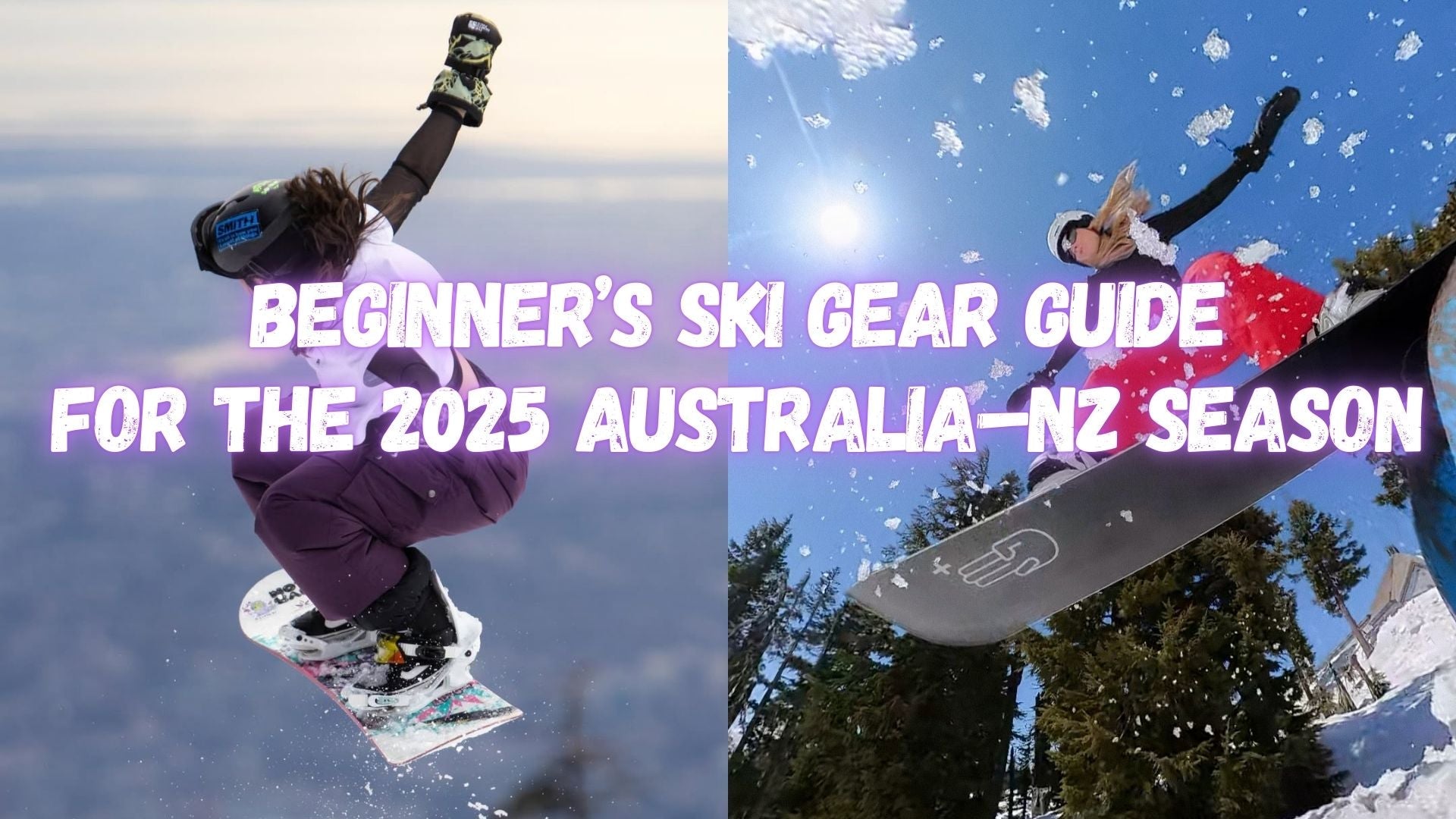
Table of content
Planning your first snow trip this season? Whether you're heading to Perisher, Thredbo, Falls Creek, or hopping over to Queenstown or Mt Hutt, having the right gear can make or break your experience. With the 2025 ski season in Australia and New Zealand just around the corner, we’ve put together the ultimate beginner’s guide to ski gear — so you can hit the slopes with confidence, comfort, and style.

The Essentials: What You Actually Need
Let’s be real — it’s easy to get overwhelmed with the sea of gear options out there. But as a beginner, you don’t need the most expensive setup. Focus on the essentials that will keep you warm, dry, and safe:
-
Ski Baggy Jacket & Baggy Pants
Look for waterproof (minimum 10k rating) and breathable outerwear. For beginners, we recommend insulated jackets and pants over shell-style ones — they’re warmer and more forgiving if you’re not layering pros just yet.
-
Base Layers
Skip the cotton. Go for moisture-wicking thermal tops and bottoms made from merino wool or synthetics like polyester. Trust us — your future self will thank you when you're not soggy after your first tumble.
-
Ski Socks
One good pair > three bad ones. Go for thin, technical ski socks that won’t bunch up in your boots.
-
Gloves or Mittens
Waterproof and insulated. Mittens tend to be warmer, gloves give more dexterity — pick what suits your style.
-
Goggles
Crucial for visibility in snow or flat light. Choose ones with interchangeable lenses if possible, or a category 2 or 3 lens for all-around conditions.
-
Helmet
Don’t skip this. Even if you’re just starting out, a helmet is a must. Most resorts won’t rent you skis without one nowadays.
Rent vs. Buy: Where to Invest First
Here’s the lowdown:
- Rent your skis, boots, and poles. Especially for your first trip — it saves money, and rental shops will help you find the right fit.
- Buy your clothing layers. Rental outerwear can be… questionable. Owning your own means you get the fit, function, and aesthetic that suits you.
Pro tip: Start with key items like a ski jacket, pants, and gloves, and build up your gear closet over time.



Extra (But Helpful) Add-Ons
Not essential, but definitely nice to have:
- Neck warmer / balaclava – blocks cold wind on the chairlift
- Backpack – carry snacks, water, or an extra layer
- Hand warmers – game changer for cold mornings
- Snowboard/ski lock – just in case



Final Tips Before You Go
- Book your rentals early – gear gets snatched up fast during peak weekends
- Practice putting everything on before your trip – especially boots and goggles
- Don’t overdress – you'll warm up faster than you think
- Take breaks – learning is tiring (and fun!)
- Have fun – that’s the whole point 🌨️
1. What should I wear under my ski jacket?
Stick with one base layer (like merino thermals) and one mid-layer (like a fleece). Don’t pile on t-shirts or hoodies — they trap sweat and make you colder.
2. Do I need ski goggles or can I wear sunglasses?
Sunglasses might work on sunny days, but goggles are way better for visibility, especially in snow, fog, or wind. Plus, they stay on when you wipe out 😅
3. Is it better to rent or buy ski gear as a beginner?
For your first or second trip, it’s smarter to rent skis, boots, and poles — they’re pricey and take time to figure out what you like. But owning your jacket, pants, gloves, and goggles makes a big difference in comfort.
4. How many layers do I need?
Three is the magic number:
Base layer (thermal)
Mid layer (fleece or down)
Outer layer (jacket and pants)
Add or remove based on the weather.
5. What if I get too hot or cold?
Layering is key — you can peel off a fleece or unzip vents in your jacket. If you’re cold, make sure your base layer isn’t damp, and throw on a neck warmer or beanie during breaks.
Ready to Ride?
Gear up, layer smart, and don’t stress. Every pro was once a beginner — and the best way to learn is to get out there and give it a go.
Need help choosing your first jacket or goggles? Slide into our DMs or visit our Snowverb fitting guide. See you on the slopes! 🏔️



























































































